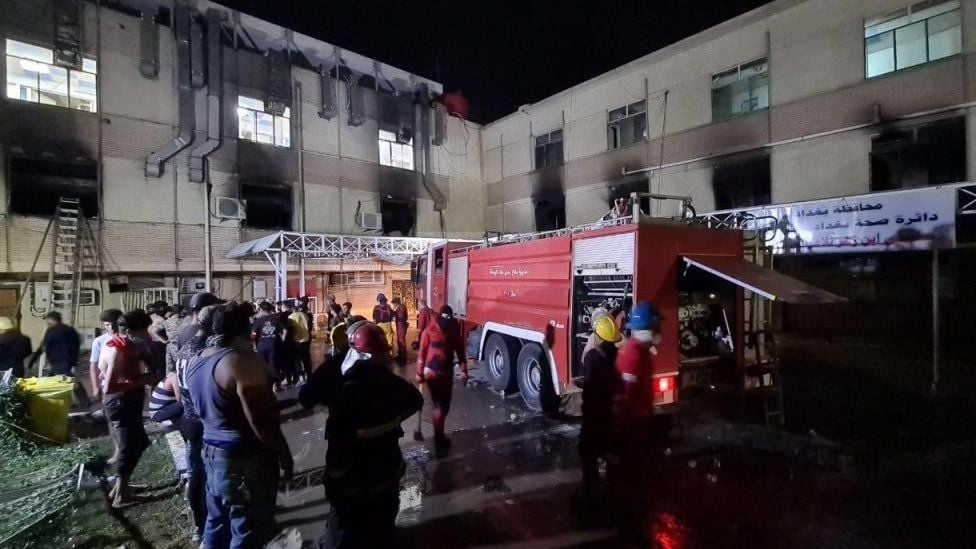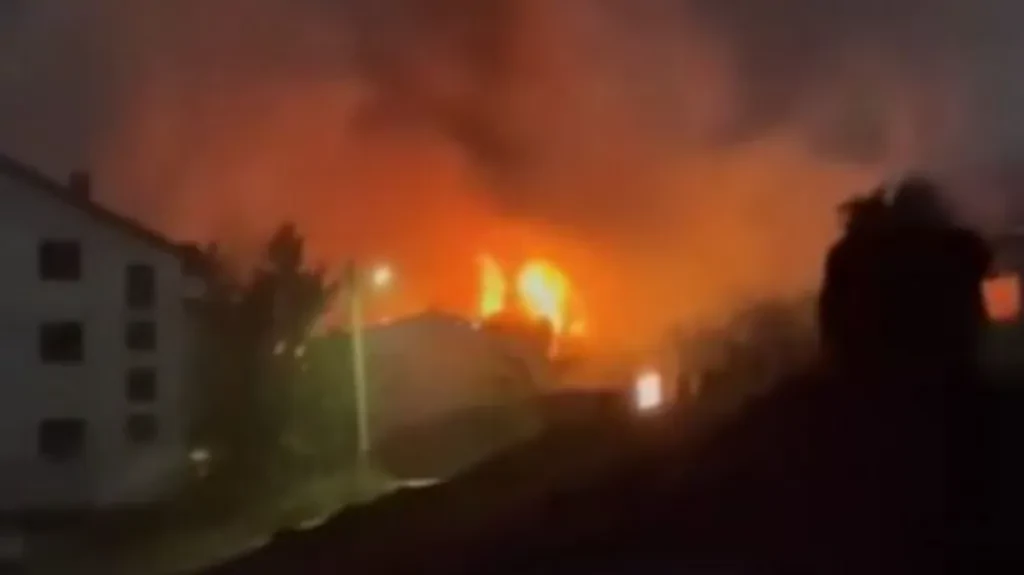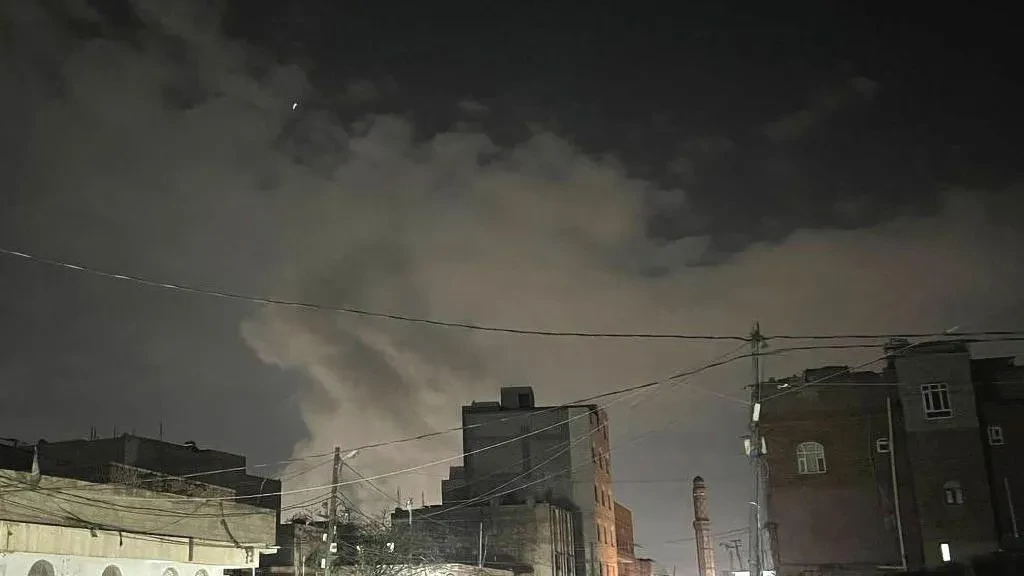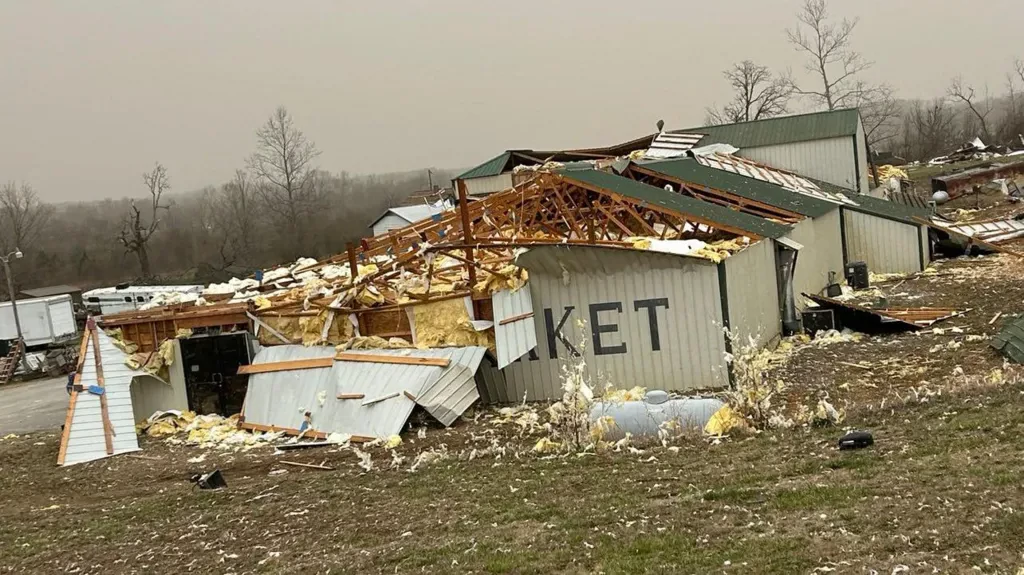At least 23 dead in fire at Iraqi Covid hospital

BAGDAD, April 25: At least 23 people died when a fire broke out Sunday in a coronavirus intensive care unit in the capital of Iraq, a country with long-dilapidated health infrastructure facing mounting Covid-19 cases.
The fire started with an explosion caused by "a fault in the storage of oxygen cylinders", medical sources told AFP.
It spread quickly, according to the civil defence, as "the hospital had no fire protection system and false ceilings allowed the flames to spread to highly flammable products".
Iraq's hospitals have been worn down by decades of conflict and poor investment, with shortages in medicines and hospital beds.
The incident sparked outrage on social media and the prime minister has called for an investigation into the cause of the blaze.
In the middle of the night, as dozens of relatives were at the bedsides of the 30 patients in the intensive care unit at Ibn al-Khatib hospital -- reserved for the most severe Covid-19 cases in Baghdad -- flames spread across multiple floors, another medical source said.
Videos on social media showed firefighters trying to extinguish flames at the hospital on the southeastern outskirts of the Iraqi capital, as patients and their relatives tried to flee the building.
"The majority of the victims died because they had to be moved and were taken off ventilators, while the others were suffocated by the smoke," the civil defence said.
It told Iraqi state news its members had "rescued 90 people out of 120 patients and their relatives" at the scene, but could not give an exact number of the dead and wounded.
Medical and security sources told AFP that 23 people had been killed and some fifty others injured in the blaze.
The health ministry, which did not put out a statement until several hours after the fire, said it had "saved over 200 patients", and promised an official toll of the dead and wounded later.
- Negligence -
The fire -- which according to several sources was caused by negligence, often linked to endemic corruption in Iraq -- immediately sparked anger on social media in the country, with a hashtag demanding the health minister be sacked trending on Twitter.
Baghdad Governor Mohammed Jaber called on the health ministry "to establish a commission of enquiry so that those who did not do their jobs may be brought to justice".
In a statement, the government's human rights commission said the incident was "a crime against patients exhausted by Covid-19 who put their lives in the hands of the health ministry and its institutions and instead of being treated, perished in flames".
The commission called on Iraqi Prime Minister Mustafa al-Kadhemi to fire Health Minister Hassan al-Tamimi and "bring him to justice".
Kadhemi responded by calling for "an immediate investigation with those in charge at the ministry" and demanded that the "hospital director, head of security and the technical maintenance team be sent to the investigators and not be released until those at fault have been brought to justice".
He also declared three days of national mourning. On Wednesday, the number of Covid-19 cases in Iraq surpassed one million, the highest of any Arab state.
The health ministry has recorded 15,217 deaths since the country's first infections were reported in February 2020.
It has said it carries out around 40,000 tests daily from a population of 40 million. Those patients who can often prefer to source oxygen tanks for treatment at home, rather than go to overcrowded and run-down hospitals.
The country launched its vaccination campaign last month, and has received nearly 650,000 doses of different vaccines -- the majority by donation or through the Covax programme, which is helping lower and middle income nations to procure vaccines.
As of Wednesday, 274,343 people had received at least one dose, the ministry said. Health authorities have faced an uphill battle to convince Iraqis to get vaccinated, in the face of widespread scepticism over the jab and public reluctance to wear masks since the start of the pandemic.





Leave Comment